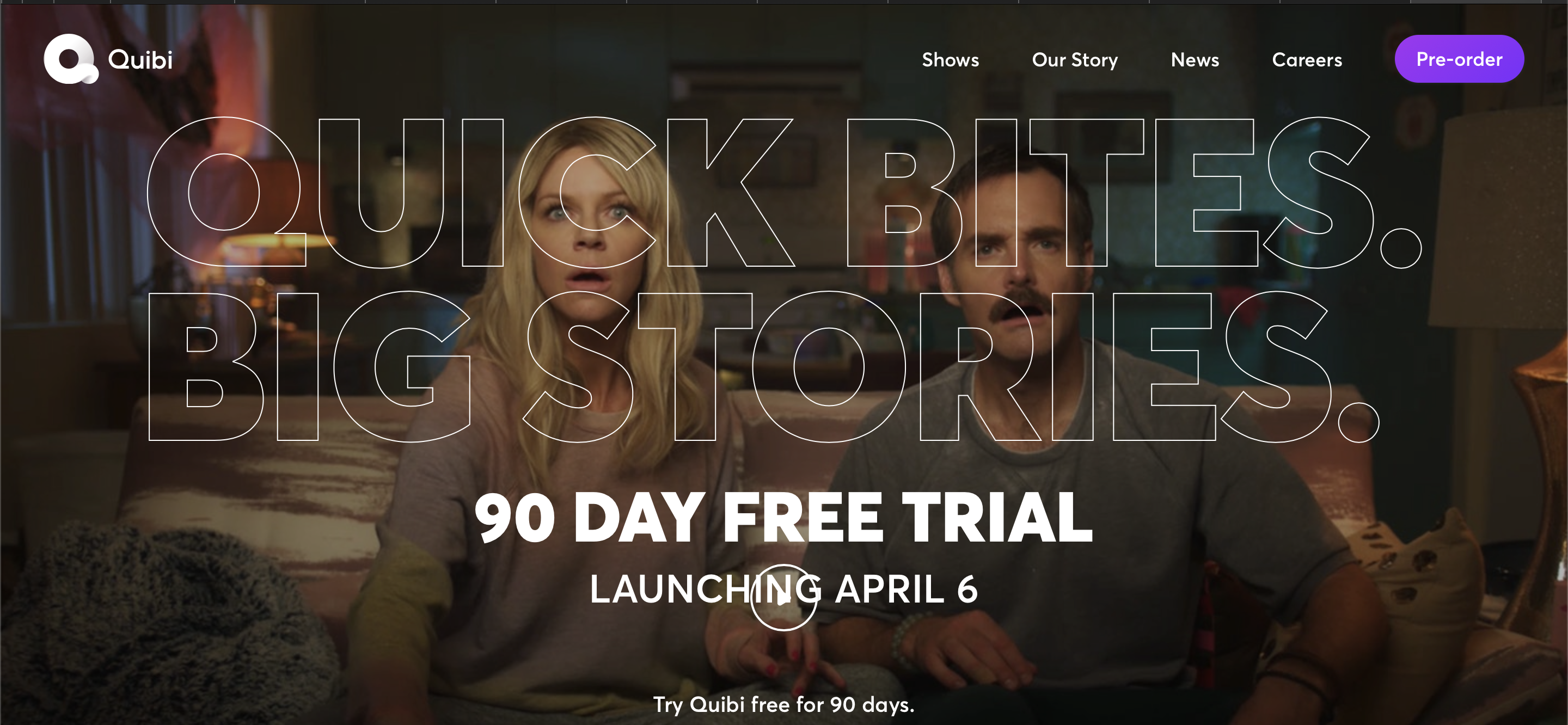
Quibi is a video streaming subscription service that will launch on April 6th. But it’s not “just another” streaming service. There are a few reasons Quibi is different. For one, they are the first service that is tailored specifically to the mobile phone. Led by Jeffrey Katzenberg, former Chairman of Disney, and Meg Whitman, former CEO of eBay and HP, they have raised close to $2 billion (with a “B”) before launch.
Quibi is getting a lot of snark and people seem genuinely stunned by the dollars at play. But I’d argue there was no other alternative. It was actually required. Quibi is a studio, much like Disney or 20th Century Fox, but unlike those studios that have built up their content libraries over decades, Quibi has built their entire library, from scratch, in the past 2 years. And they need to launch with this library available on day one.
There are two good reasons that they decided to build a whole, original library instead of licensing or acquiring existing content:
- Quibi has watched and learned from the evolution of Netflix and Amazon. When Netflix started, they licensed the content. When they realized that they were at the mercy of the content owners, they decided to start making original films. Amazon Prime Video followed a very similar path and now is a funder of original content, too. So, original content was the only way to launch a new service in 2020.
- Quibi’s content format is different. Each film is actually shot in both portrait mode (full screen) and landscape mode (full screen). That means you can watch each film in both portrait and landscape and have a full screen experience regardless. You cannot do that today. Almost all video content (short or long) is shot in landscape. In addition, the films are broken into short chapters of ten minutes each. The idea here is that instead of scrolling through Twitter or Instagram when you have a short break, you could watch a “chapter” instead.
That’s why they need all of this money.
This is the first real innovation that has happened to movies since synced sound. And that is a very strong statement. Sure, technology has improved (frame rates, HD, 3D etc.), but whether we are watching it in a movie theater or on an iPhone, everyone’s experience is exactly the same: in landscape the whole time.
Quibi is finally leveraging the tech we now have (phones) to allow you to watch the movie differently. This might not seem like a big deal, but it opens up some very interesting possibilities. What if filmmakers used landscape for the “regular’ movie, and portrait…
— to watch it from the perspective of one actor?
— to show you what the characters were thinking instead of saying?
— to show you what was happening with another character or thread, in another part of the plot?
— to use a different language?
— to use no langue, but rather just silent, with everything in the facial subtext?
This is a real innovation in film and it’s really the first time that the technology we are watching the movie on, changes the movie we are watching. This has never happened before. Quibi has put constraints on itself – you can’t watch this on your television or laptop (although, I presume you can cast to them, the experience will not be as good). And by embracing constraints, it has opened itself up to creativity.
In addition, instead of being from 90-120 minutes, the movie is a set of chapters of 10 minutes. Each of those could be watched like an episode, instead of scrolling Twitter or Instagram.
This is not a regular startup. This is a movie studio plus a tech company. This is what they needed to do to give themselves a real shot. And yes, they are spending a ton on marketing. Again, what should they do? Spend a billion dollars on creating content no one sees? They are going big, they are able to raise that money, so I say, go for it.
Quibi is launching at an interesting time. We are all stuck at home during a global pandemic. This should work in their favor – who wouldn’t want a 10 minute break between the wall to wall zoom calls? Or at night while we try and decompress without a computer?
I love the fact that we are seeing innovation after centuries. It may change how movies are shot and give filmmakers a new way to speak to audiences. It’s exciting, it’s fresh, it could be huge.
I, for one, am rooting for them to succeed.